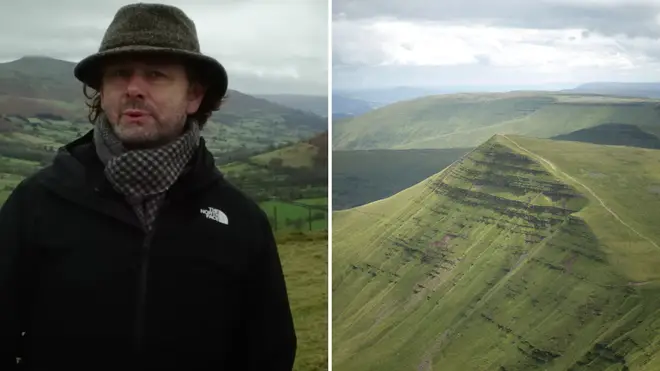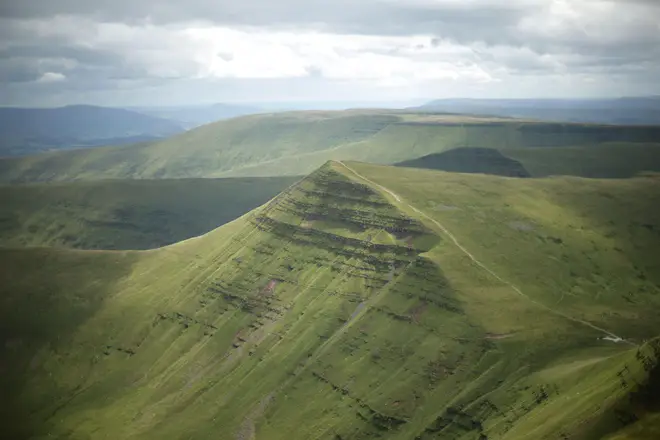
Henry Riley 4am - 7am
17 April 2023, 09:40 | Updated: 17 April 2023, 10:12

The iconic Brecon Beacons national park has been renamed in a bid to cease negative connotations linked to climate change as well as honouring the Welsh national language.
The move will now see the landmark go by the name of Bannau Brycheiniog National Park from Monday, marking its 66th anniversary.
The renaming coincides with a wider overhaul of the park's management in a bid to address environmental concerns, with the word “beacon” being removed in line with the fight against climate change.
Park bosses highlighted the name change will also celebrate the Welsh language as well as the country's rich national heritage.

Bannau Brycheiniog: an old name for a new way to be
The new Welsh name means "the peaks of Brychan's kingdom" and is pronounced phonetically as 'ban-aye bruch-ein-iog'.
In Welsh, the letters ch make the same rounded sound as you find in words such as 'loch'.
The name of the park was changed because the use of the word 'beacons' evokes wood-burning braziers - a cause of carbon emissions, was deemed contrary to the ethos of the area.
People can also call it simply the Bannau for short.
Welsh actor Michael Sheen explained the changes in a video, saying: “I'm delighted to see them facing their challenges head-on and welcome the reclamation of the old Welsh name, an old name for a new way of being.
“National parks have a vital role to play in providing for nature, for people and for our shared future.”
Brecon's chief executive Catherine Mealing-Jones said: "Given that we're trying to provide leadership on decarbonisation, a giant burning brazier is not a good look."
“We’ve had awful wildfires over the last few years. So anything that kind of promotes that idea that fire in the landscape is a good thing made us feel that it probably wasn’t the look we’re going for.”
Brycheiniog stems from the 5th Century King Brychan and refers to an independent kingdom which existed during the early middle ages.
Read more: Police investigating mum's allotment destroyed by vandals with 5kg of salt
Read more: Animal rights protestors close M57 after glueing themselves to the road amid Grand National protests
The kingdom's borders roughly match those of today's national park, with the word Beacons in the original name hailing from the use of historic signal fires which were once lit on its hilltops.
Officials have said the park's symbol - a flaming beacon emitting carbon “does not fit with the ethos” of the national park as an eco-friendly organisation.

However, a senior Conservative source has told The Telegraph the decision to rename the landmark is “pure virtue signalling” that would “do nothing to actually help the environment”.
It's the second of Wales' national parks to be renamed in the Welsh language, with Snowdonia being renamed Eryri last year.
The new plan drawn up by park management will attempt to halt declining wildlife species across the park by 2030, reaching net zero carbon emissions by 2035 according to bosses.
The park has vowed to work with partners to plant a million new trees, restore 16,000 hectares of damaged peatland and build renewable energy schemes alongside their hopes of improving local public transport.